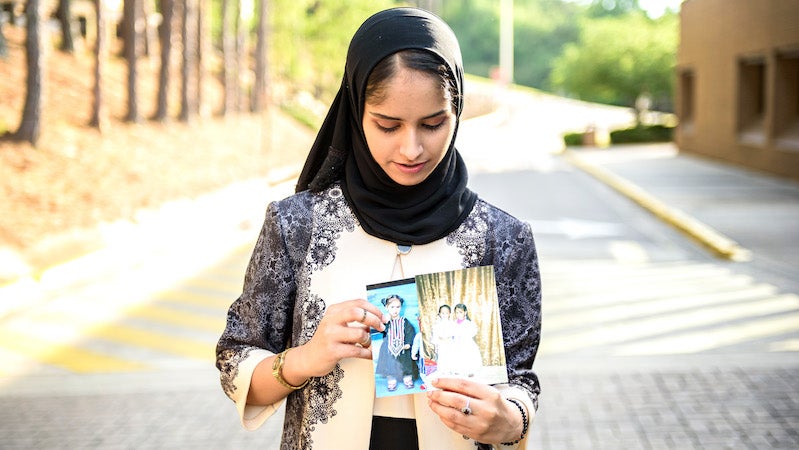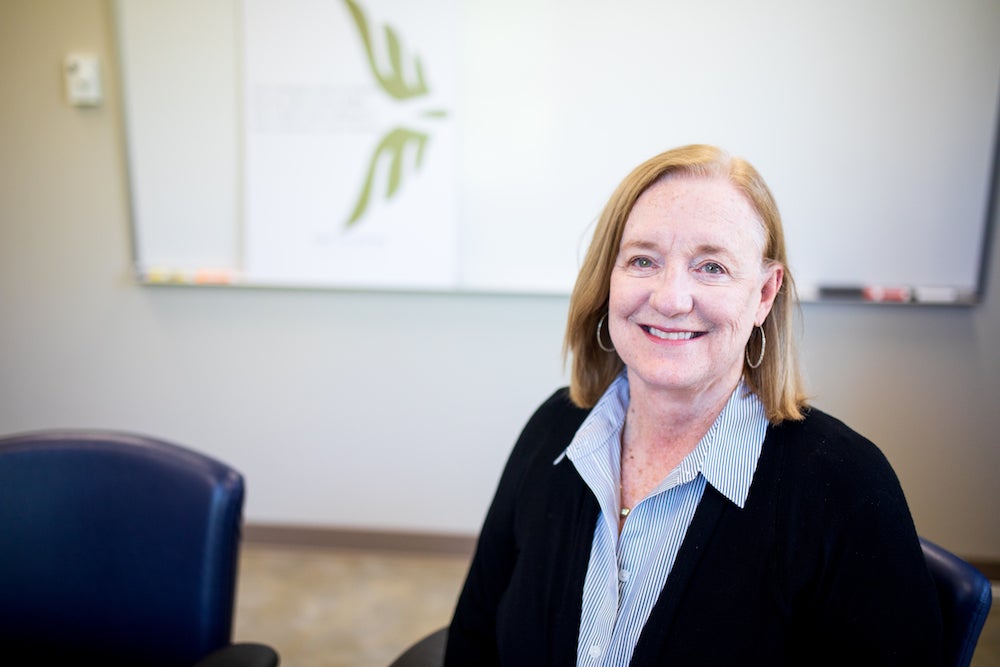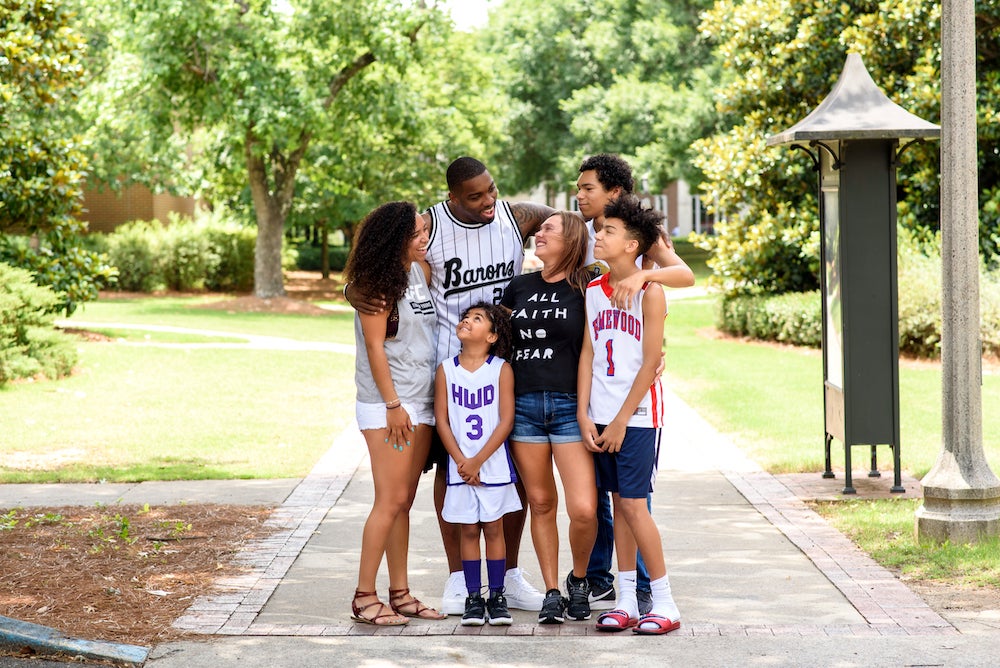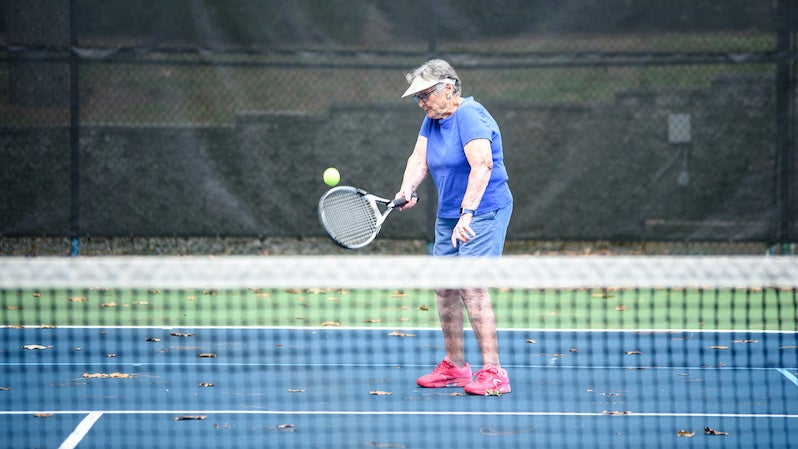If you know Ghan Al Sharqi, you know her smile. It spread across her face with brightness as she shyly entered Homewood High School four years ago speaking no English, and it was all the more present when she received her diploma there in May.
“The first thing I remember (about Ghan) was her wanting so badly to communicate with me,” school counselor Elaine Meeks recalls. “She wanted to say hello and give me a proper greeting. We were in a position to welcome her, but she was welcoming us into her life. In a very graceful way she made you want to get to know her better.“
Ghan (pronounced “Gee-han”) was born in Yemen and lived there until 2016—January 6, 2016 to be exact, she’ll tell you—when her family immigrated to the U.S. through the American embassy in Algeria since the one in Yemen was closed due to civil war. For the first six months they lived in New York before coming to Alabama to visit a family member. By contrast, they saw Alabama was “quiet and chill and easy,” Ghan recalls. When her family started looking at moving there, one of her dad’s friends recommended a community to live in. “If you are living in Alabama, you have to go live in Homewood because they have the best schools,” Ghan remembers him saying.
That fall Ghan entered the ninth grade at Homewood High School speaking no English. The average length for developing language proficiency in a school setting is five to seven years—not to mention the academic rigors that come in high school. But that wouldn’t be true for Ghan.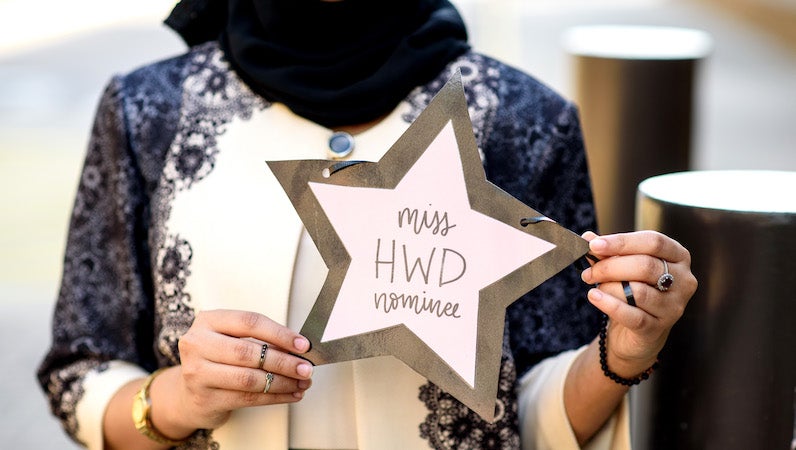
She was persistent. She had grit. And she fought tooth and nail to learn and advocate for herself. She’d often stay up until midnight studying, and even when she wasn’t doing school work she was studying TV shows like Prison Break, Just Add Water and Wonder Woman to see how people communicate.
When she looked around her at HHS, Ghan only saw a few Arabic-speaking students in each grade. Initially she was afraid that because she wore a hijab that no one would talk to her. But Ghan found the more she spoke English, the more students would say hi to her and ask about her day, and the more she interacted with her peers, the more motivated she was to improve her English. Day by day, her confidence grew not only in her new language but also in herself.
And it paid off. After just two years at Homewood High School, Ghan was at 85 percent proficiency in English and headed into her junior year without enrolling in English language support classes. She even signed up for a French class taught in English.
And her teachers certainly took note. “Her life was never an excuse for her,” says math and ACT prep teacher Holly Drake. “She was determined to learn the language and make the best of every opportunity.” ESL teacher Jennifer Harvey speaks of her determination as well. “(Ghan) is willing to try things and take the risk of making a mistake without melting down,” Harvey says. “She sought out conversations with her English-speaking peers rather than just staying in her language group, which takes courage. She interacted with her teachers, and when she didn’t understand something, she persisted until she did.”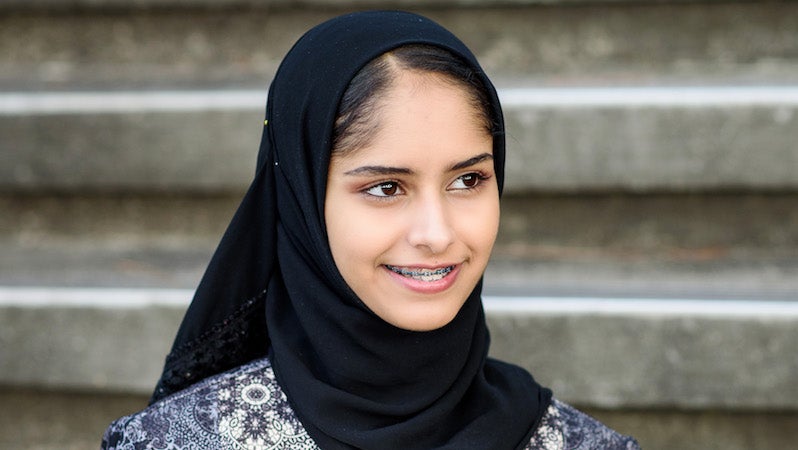
In the beginning, Ghan might not have known her teachers’ native tongue, but they spoke another language she knew. “Not only were they teaching me, but they also put a smile on their face and chatted with me (about my life) to improve my English,” she says. And each of them told her how they noticed her smile—a trait Ghan had never picked up on herself.
English class was always difficult for her with the language barrier, but math and physics came more easily and ultimately sparked her interest in studying dentistry—yet another way to let smiles shine.
By her senior year, Ghan had seen the school had a French club, a Spanish Club, a Latin Club—but no Arabic Club. So she founded one as an avenue to share her language and culture with her peers. At their meetings she taught them how to write their names in Arabic, and they watched Arabic movies with subtitles in English, tried Arabic food and took a field trip to the Middle Eastern Food Festival. “I want them to know that wearing the hijab and the (other) way we do things are what we chose by ourselves, and it’s part of our culture and life, like Christmas and Thanksgiving and Easter,” Ghan says. “It’s not forced from our government and our parents.”
Harvey credits the high interest in the club to Ghan herself. “It has a lot to do with her engaging outgoing personality and her passion for sharing about her culture,” Harvey says. “Because she loves learning about American culture, they were interested in her culture. It’s about exploring other cultures and learning we are more alike than we are different.”
Along the way, Ghan picked up parts of American culture and a Southern accent too. She says the biggest difference she has seen is how everyone in the U.S. is trying to improve and change politics, the environment and more. “There’s a hunger for change always on their mind,” she says. “I love this thing about it.”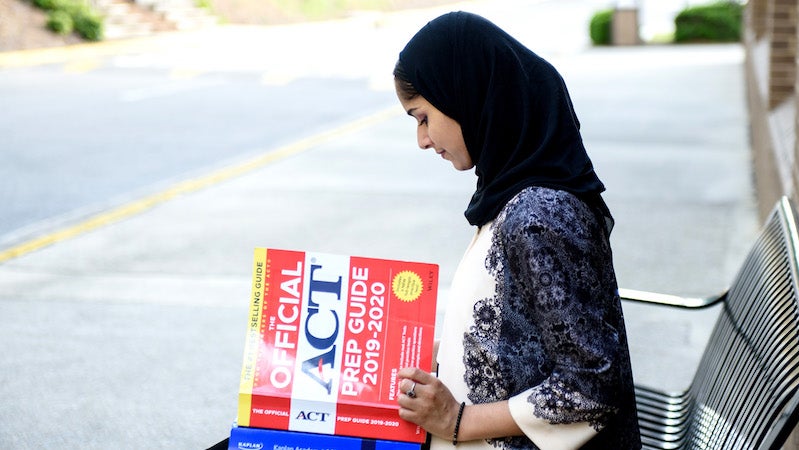
Entering her senior year in 2019 Ghan also had her sights set on going to UAB for college. She had heard there was a diverse student population with a lot of Middle Eastern students and knew it had a good medical program and was close to her family. But her biggest barrier was the ACT. So she practiced, she studied, she practiced and she studied. She’d work through one book of practice tests and then ask her teachers for more. She was good at math, but the word problems in a language that was still relatively new to her were a challenge. In the end, though, her final test score was below UAB’s minimum requirement. She applied anyway. Even with her 3.9 GPA, the university turned down her application.
But the story didn’t end there. Together with Meeks and some of her teachers they started an appeal process with UAB. “I had no idea what we were doing, but we got to learn together,” Meeks admits. And now the Homewood counselors know better how to advocate for students in a situation like hers. Without her even realizing, Ghan was paying it forward.
Ghan’s teachers wrote about the cultural bias against non-native English speakers, but that’s not what they focused on. Instead they touted Ghan’s academic acumen and how hard she works even when she didn’t know what the end result of her determination would be.
Ghan will never forget the day in early March the letter came in the mail revealing UAB had admitted her into their freshman class. She screamed, she yelled and she jumped around, and then she called a friend on Facetime. “It was the best thing ever!” she says. “I went and told Mrs. Meeks and she cried, and she made me cry too.”
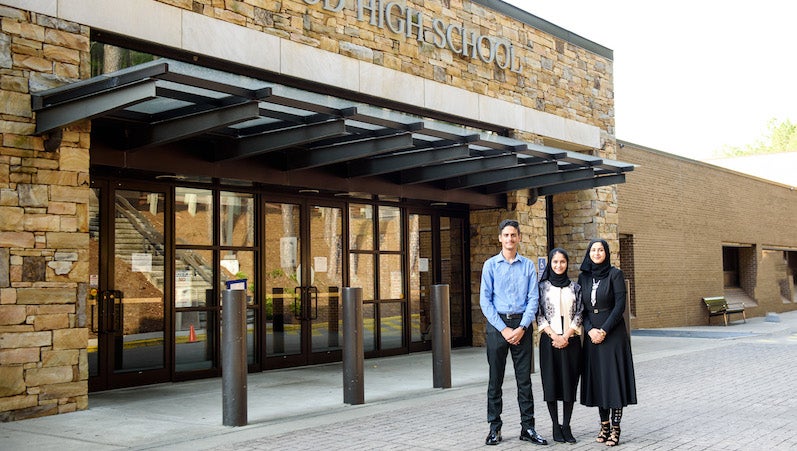 Like all of her peers, Ghan spent extra time with her family as her senior year wrapped up in quarantine. She translates mail for her parents since they don’t speak English and encourages her two younger siblings in their school work. Her brother Ahmed, a rising senior, is involved in ROTC and plays tennis, and her sister Gmahir, a rising freshman, likes art and makeup art and has been involved with the Trendsetters, Heritage Panel and SGA. “I encourage them to never ever give up and be as patient as possible because that’s what they need to be to become successful,” she says.
Like all of her peers, Ghan spent extra time with her family as her senior year wrapped up in quarantine. She translates mail for her parents since they don’t speak English and encourages her two younger siblings in their school work. Her brother Ahmed, a rising senior, is involved in ROTC and plays tennis, and her sister Gmahir, a rising freshman, likes art and makeup art and has been involved with the Trendsetters, Heritage Panel and SGA. “I encourage them to never ever give up and be as patient as possible because that’s what they need to be to become successful,” she says.
As our interview with Ghan over Facetime came to a close, she wanted to make sure this article gave credit where she saw credit was due for her successes. “I’d like to thank every teacher and staff member in Homewood and Dr. Cleveland, who always gives me a big hug and asks about Yemen. It’s the best thing ever,” she says. “And I thank my mom and dad and (older) brothers who sacrificed too so I could learn English and go to a good college. This is the dream of everyone in Yemen so they can become a successful person.”

